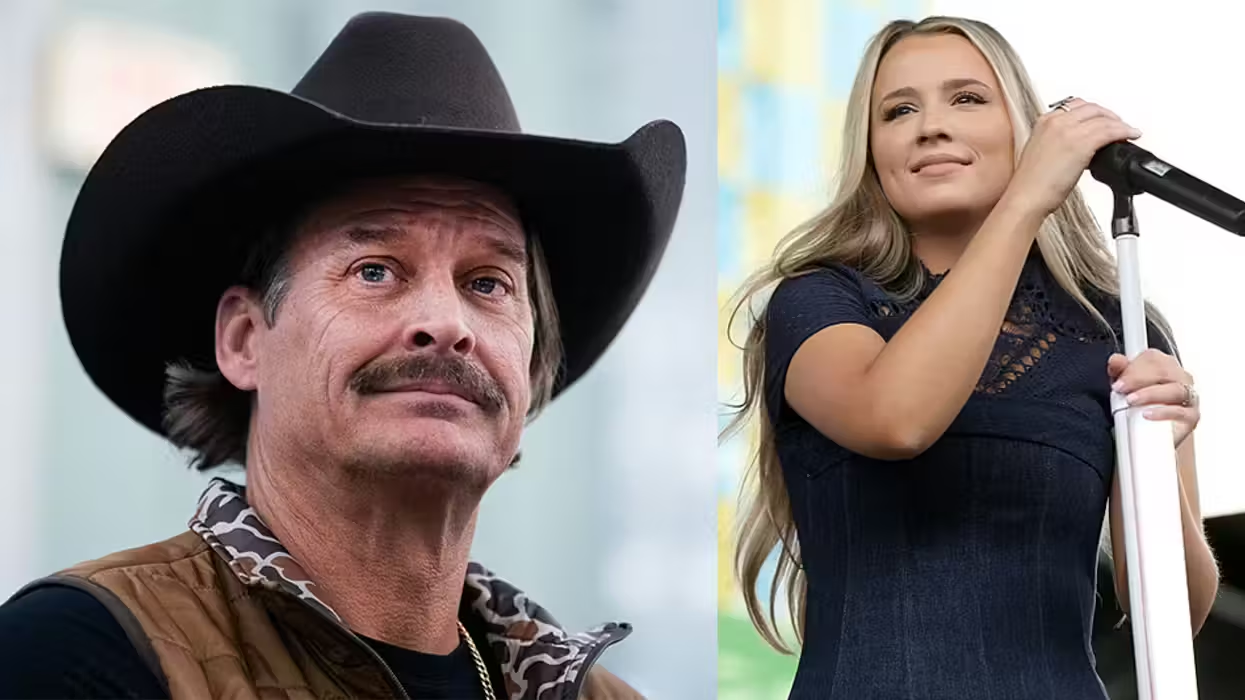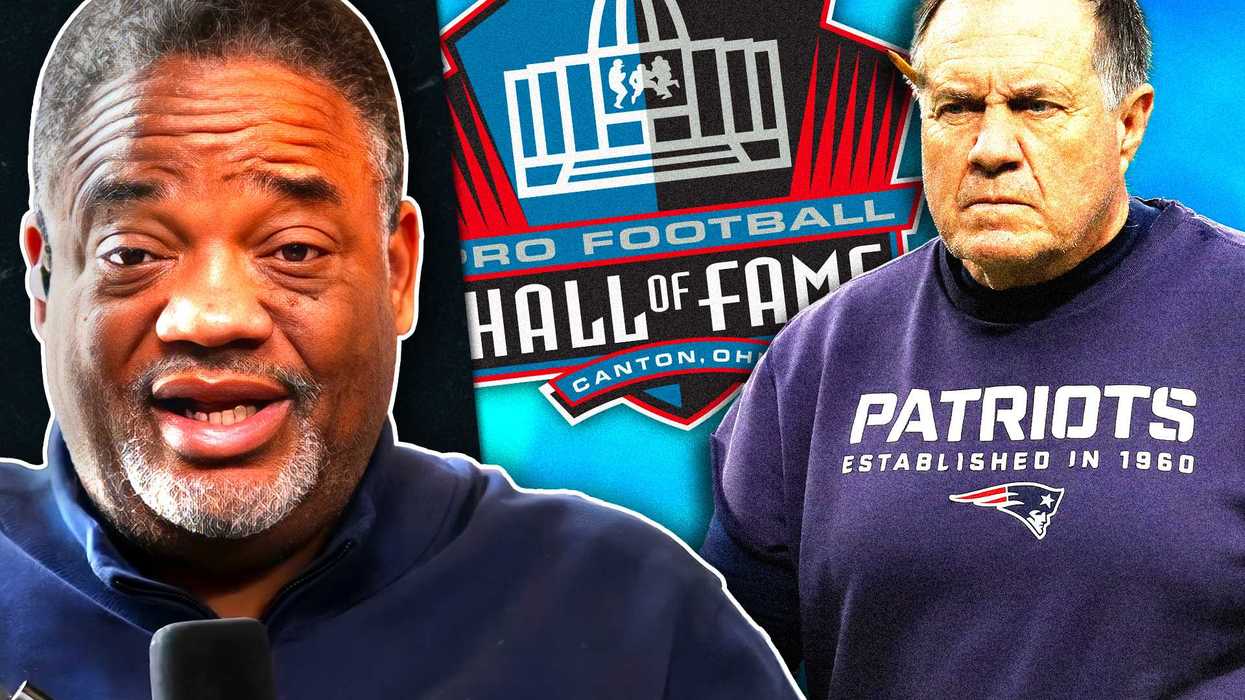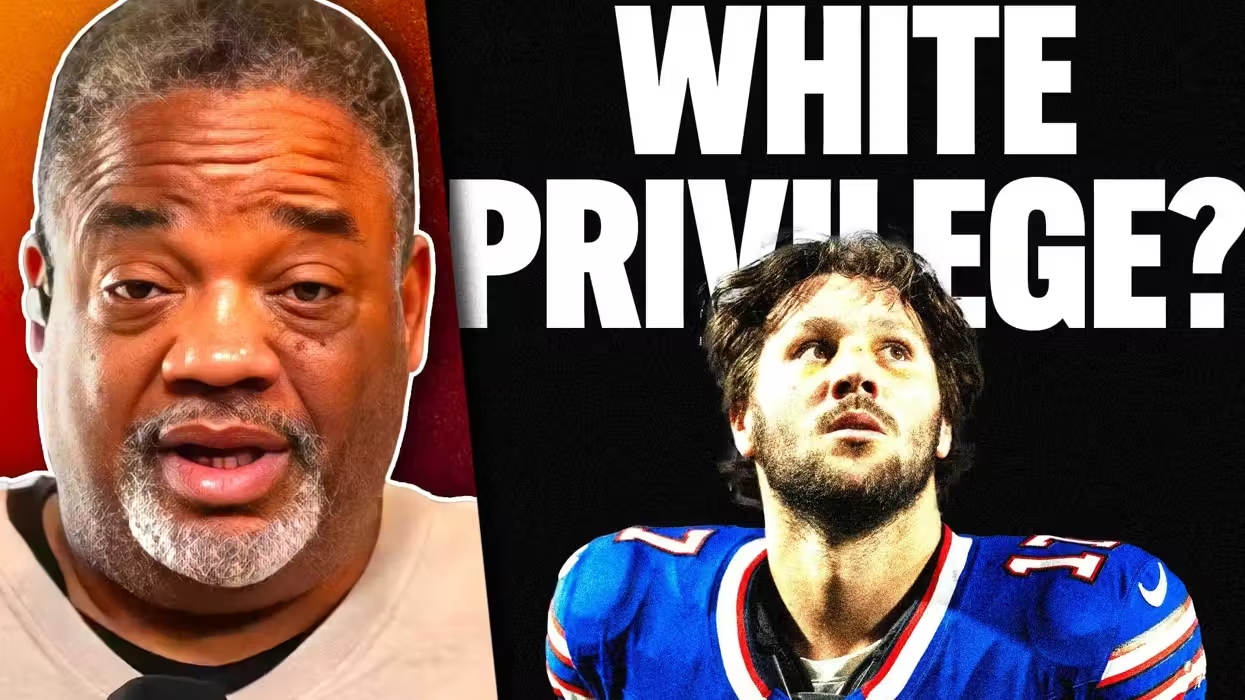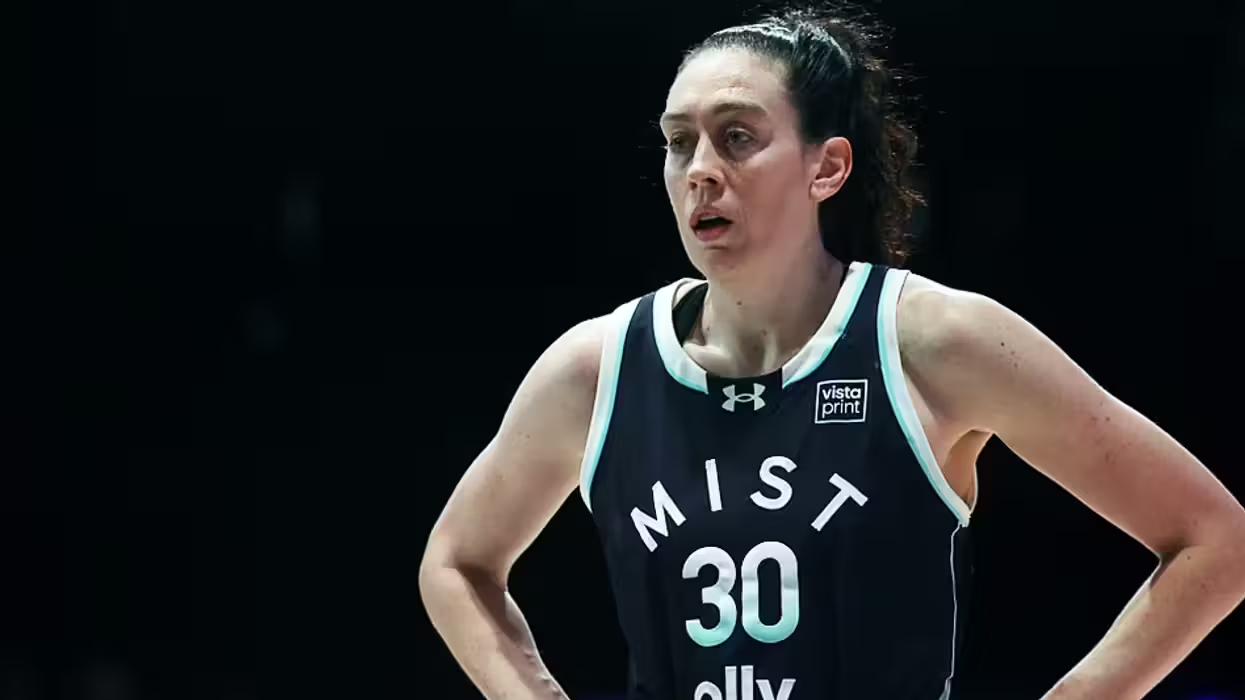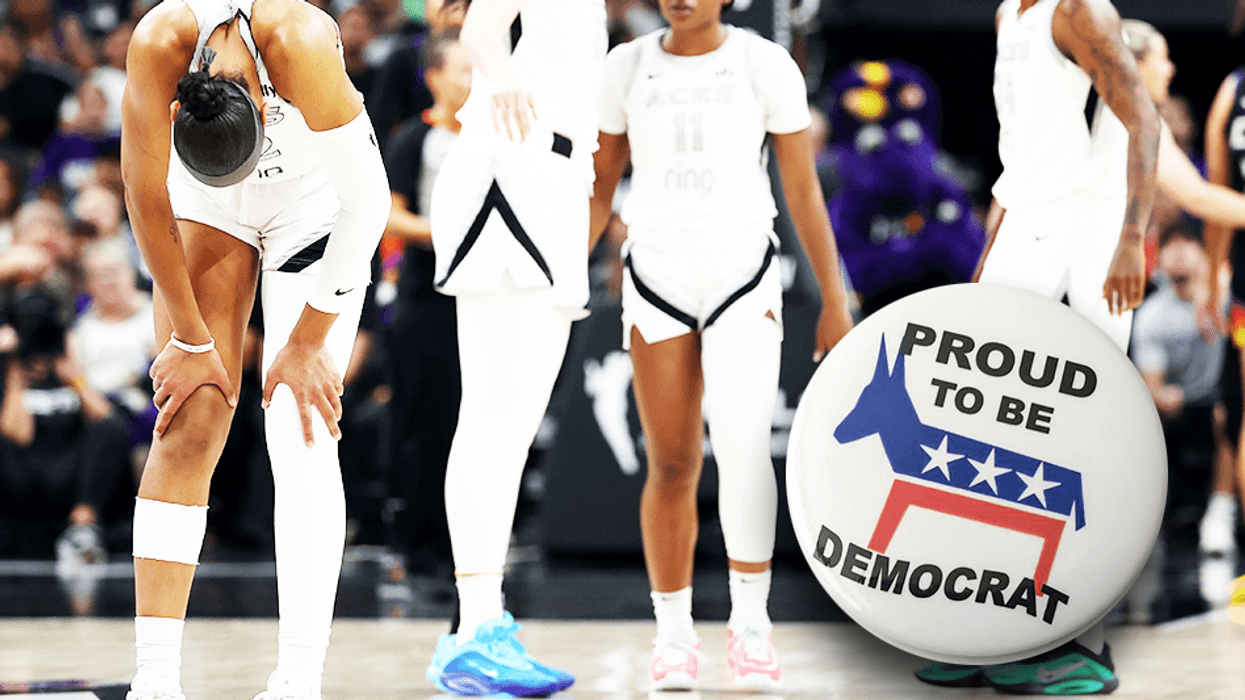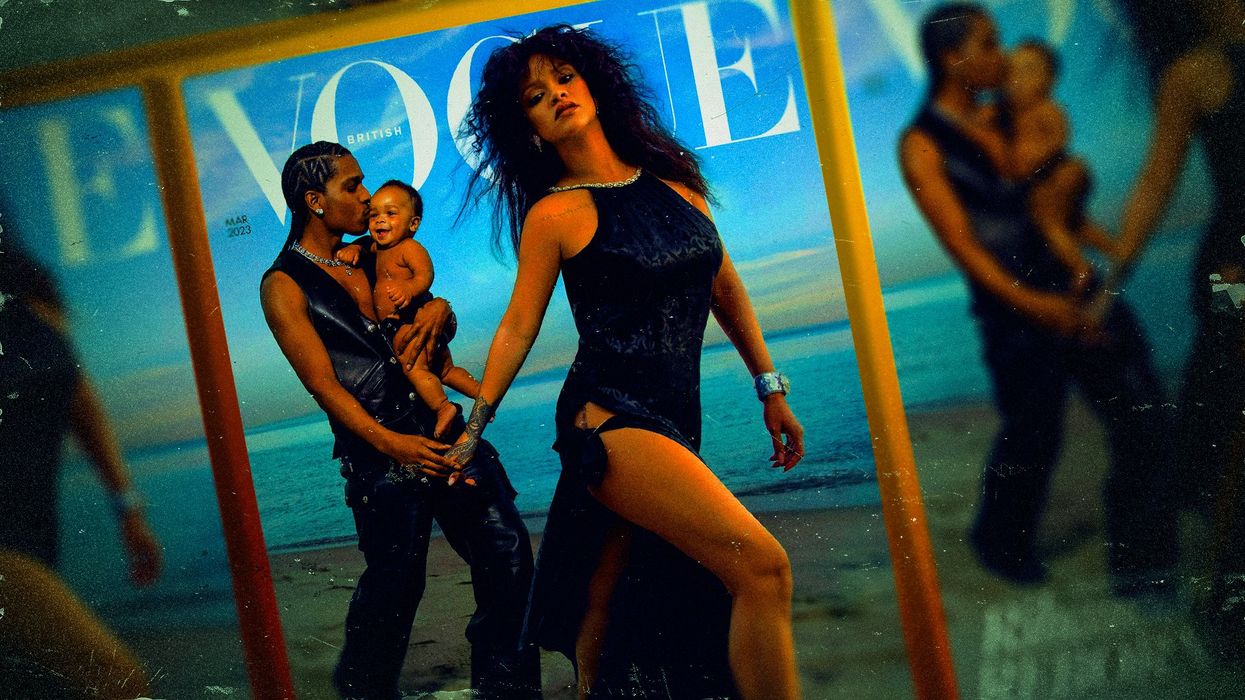
© 2026 Blaze Media LLC. All rights reserved.
Squires: The A$AP Rocky Vogue cover wouldn't exist if black elites protected the black male image as fiercely as they protect their sororities
February 21, 2023
There is a simple strategy that would have prevented the controversial magazine covers of A$AP Rocky and Jonathan Majors from ever seeing the light of day: Treat black men like sorority sisters.
I know that sounds like a counterintuitive game plan for countering the feminization of black men, but let me explain.
"Sorority Sisters" premiered on VH1 December 15, 2014, and was watched by over 1 million people. You would think those types of numbers would lead to a multiseason run, but that wasn’t the case. The show followed nine women from four historically black sororities (Alpha Kappa Alpha, Delta Sigma Theta, Zeta Phi Beta, and Sigma Gamma Rho), but the trailer and first episode looked more like a "Love & Hip Hop" spin off than a celebration of the black Greek Letter Organizations that are part of the “Divine Nine.”
The first, Alpha Phi Alpha fraternity, was founded in 1906 at Cornell University. These organizations are well known for community service as well as cultivating some of the most well-known members of the leadership class that W.E.B. DuBois called the “Talented Tenth.” From Dr. King and Michael Jordan to educator Mary McLeod Bethune and media executive Cathy Hughes, black fraternities and sororities have made significant contributions to African-American uplift.
That is why there is a certain protectivenss that their members – and many black college grads who aren’t members – feel over these organizations.
But there is also something else at play. Educated white liberal elites openly deride the backward behaviors – and voting patterns – of their “white trash” peers and relatives. A nonprofit executive living in D.C. will quickly inform you that she’s nothing like her Trump-loving family members in rural Georgia. Black elites don’t have the same luxury. They understand that black culural influence and political power would be greatly diminished if they ever distanced themselves from lower-class black people who have six kids by five men or sag their pants or curse loudly on public transportation.
They accuse black people who criticize these behaviors of engaging in “respectability politics,” even though people who behave that way would be shunned in the black enclaves of power and privilege on Martha’s Vineyard. The black leadership class that talks liberal but lives conservative is willing to live with this tension – until it crosses into an area it is willing to protect.
The violation of those borders unleashed a master class in image management that would have completely transformed America if it had been applied to the black community as a whole since the 1990s.
In the span of a few weeks, prominent members of black fraternities and sororities started a campaign and a hashtag to get the show off the air. Roland Martin, a member of Alpha Phi Alpha, appeared on "Morning Joe" and said the show denigrated black women. Ava DuVernay, a member of Alpha Kappa Alpha, asked that commercials for her film "Selma" be pulled while the show aired. Even K. Michelle, an R&B singer – and Delta – who built a following as a cast member of "Love & Hip Hop" criticized the show publicly.
Sponsors got the message. Victoria's Secret, McDonald's, Sports Authority, Hallmark, Honda, Ford, State Farm, Crayola, Carmex, and even the NBA all pulled their ads from airing during the show. VH1 responded to the pressure campaign and canceled the show one month after it premiered.
That wasn’t the end of the story. Several women were kicked out of their sororities, and one woman appeared on Steve Harvey’s show to beg for forgiveness from one of her fellow sorority sisters. Harvey, himself a member of Omega Psi Phi, explained the lifelong nature and cultural significance of black fraternities and sororities.
The black Greek community and their allies who didn’t belong to fraternities and sororities completely destroyed "Sorority Sisters." The people responsible for the show’s demise demonstrated what organizations that value dignity, legacy, and community do when members forget who they are and what they are supposed to represent.
The trajectory of black America would have been completely altered if the gatekeepers of culture paid as much attention to the assaults on our image as they did to a few catty sorority sisters.
For the better part of 30 years, black professors, culture critics, journalists, and entertainers have made one excuse after another for the violent, debauched, degrading, and self-destructive images that have become the norm within hip-hop culture. They have claimed that artists are simply acting as the “CNN of the hood” or reflecting the problems in society. But in the span of a few weeks, the black leadership class flexed its muscle and showed what it can do to protect a community it actually cares about.
That rise and fall of "Sorority Sisters" confirmed what I had suspected for a long time: The defenders and enablers of the worst parts of hip-hop culture will do and say anything for a few pennies or political power. They justify the vilest behavior for the sake of transgressing social norms – which they often equate with “whiteness.”
Good farmers both plant and prune. As is often the case in life, the cultural principle mirrors the agricultural reality. Wise leaders cultivate positive habits, reward hard work and diligence, build strong families, and encourage members to think beyond themselves. They also remove negative influences by leveraging shame to promote conformity to group norms. In a culture where there is a premium on marriage and intact families, a man who sires several children with different women will either feel a sense of shame or members of his family and community will help him feel it.
But life looks very different in a world where the political party that takes 90% of our vote believes in girl power and female headship. It is no surprise that a chorus of feminists, misandrists, and male allies spoke up in defense of both magazine covers. People who scoff at the notion that men have specific roles and should lead their families are only willing to police behaviors that involve politics. A cross-dressing, gender-bending celebrity would be welcomed at the BET Awards, but a pro-life one probably wouldn’t make it past security.
The attack on the black male image was much different in the 1990s and 2010s. That was the era of the pants-sagging, gun-toting, crack-slinging gangster rapper. The relationship between those men and the women in their orbit was summed up in the immortal words of Calvin Broadus, aka Snoop Doggy Dogg: “We don’t love them hoes.”
If we applied the “Sorority Sisters” standard to this issue, Snoop would either have had to change his image and music or he would have ended up right back in Long Beach gangbanging with the Crips. Either way, he wouldn’t have been allowed to peddle his wares in the black cultural marketplace.
The same goes for the feminization of men in today’s culture. If the black community had been enforcing the “Sorority Sisters” standard since the 2010s, images of a “pregnant” Lil Nas X would have been aborted soon after they were taken and elders in the community would counsel Dwyane Wade to get his son the mental health support he needs, not affirm the lie that he can “transition” into being a girl.
In that alternate universe, A$AP Rocky and Rihanna would have been married before starting a family, and the Harlem rapper would never consent to being portrayed like a teen holding his mother’s hand and cradling his baby brother.
Unfortunately, the “Sorority Sisters” standard only exists for protecting the image of black elites in popular culture.Want to leave a tip?
We answer to you. Help keep our content free of advertisers and big tech censorship by leaving a tip today.
Want to join the conversation?
Already a subscriber?
Contributor
Delano Squires is a contributor for Blaze News.
DelanoSquires
more stories
Sign up for the Fearless newsletter
By signing up, you agree to our Privacy Policy and Terms of Use, and agree to receive content that may sometimes include advertisements. You may opt out at any time.
Related Content
© 2026 Blaze Media LLC. All rights reserved.
Get the stories that matter most delivered directly to your inbox.
By signing up, you agree to our Privacy Policy and Terms of Use, and agree to receive content that may sometimes include advertisements. You may opt out at any time.


